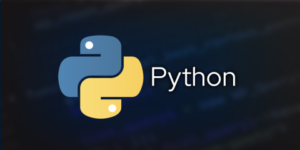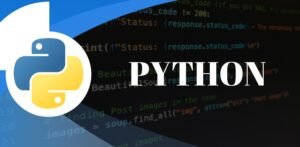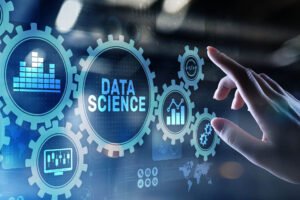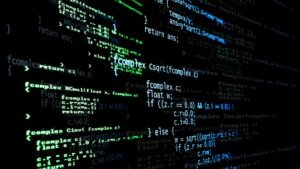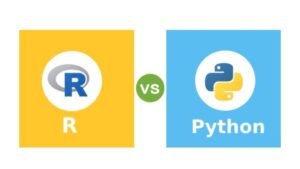Introduction
Nowadays Google, Microsoft, Facebook etc. everybody wants to get on only one bandwagon – Data Science and Machine Learning. Data Science becomes one of the fastest-growing fields along with its job opportunities.
The applications in the Data science field are endless – from sales prediction to self-driven cars and personal assistants, everything is now powered by Data Science. There is no surprise that every organization prefers a talented Data Scientist.
To do a masters in data science, you must master the skills required for data scientist positions in various companies and organizations. So have a look at the essential skills for a job as a data scientist.
Basic Programming Languages
You should know a statistical programming language like R or Python for data science, as well as a database query language like SQL. Programming languages help data scientists develop tools for data analysis. Most data scientists use R and Python for data science. So if you are new to programming languages, you will need to put a little extra effort into learning either of these two languages. You cannot do a Masters in Data Science without having programming experience or knowledge.
Statistics
If you want to learn Data Science, remember that Statistics is the heart of data science, all data analysis algorithms use statistical principles to analyze data. Collecting, analyzing, interpreting, presenting and organizing data is one of the most important aspects of data science. You should be able to explain expressions such as the null hypothesis, p-value, maximum likelihood estimator, and confidence intervals. Statistics are important for processing data and selecting the most important numbers from a huge data set. This is critical to decision making and the design of the experiments.
Especially for data-driven companies in which stakeholders depend on data for decision-making and the design / evaluation of data models, probability and statistics are an integral part of data science.
Machine Learning
As the name suggests, it denotes the ability of a computer to learn from a range of data and to adapt without being explicitly programmed to do so.
If you work with a company that manages and works with huge amounts of data and decision making is data centric, machine learning can be a sought-after skill. Machine learning is a subset of the data science ecosystem, just like statistics or probabilities that help shape data and produce results.
Machine learning uses the algorithms to analyze input data and predict the output within an acceptable range. You should be able to explain K-neighbors, random forests, and ensemble methods in more detail. These techniques are generally implemented in R or Python for Data Science. These algorithms show employers that they know how to use data science in a more practical way.
Data Wrangling
Often the data that a company acquires or receives cannot be modeled. It is therefore imperative to understand and correct imperfections in the data.
Data wrangling is the process of preparing data for further analysis; Transform and map raw data from one module to another to prepare the data for deepening. In data management, you basically collect data, combine relevant fields and then clean up the data.
In essence, this means that “California” and “CA” are the same: a negative number cannot exist in a data set describing the population. It’s about identifying corrupt (or impure) data and correcting / deleting it.
Data Visualization
When the Data scientists are alone they are useless. The results need to be shared with the product managers to ensure that this data is displayed in real-world applications. An important task for the data scientist is to convey to a diverse audience what the statistics show and what the data reveal. Data visualization tools help data scientists do this in an attractive and efficient way. Understanding tools like Microsoft’s Tableau, QlikView, and Power BI improves a data scientist’s ability to easily explain key findings.
Software Engineering
You should be familiar with algorithms and data structures, as these are often needed to create efficient machine learning algorithms. You have to know the use cases and runtime of these data structures: Queues, Arrays, Lists, Stacks, Trees, etc.
Product Management
Anyone who knows the product knows the most important key figures. There are a ton of numbers A / B testing can do so product-centric data scientists can choose the right metrics to experiment with. You know what these terms mean: usability testing, wireframing, retention and conversion rates, traffic analysis, customer feedback, internal protocols, A / B testing.
80% of the work is devoted to preparing data for processing in an industrial environment. With a lot of data to work with, it is imperative that a data scientist knows how to use it.
The database administration essentially consists of a group of programs that are able to modify, index and manipulate the database. The DBMS accepts a data request from an application and instructs the operating system to provide certain requested data. In large systems, a DBMS helps users store and retrieve data at a specific point in time.
Cloud Computing
Data science practice often includes the use of cloud computing products and services to make it easier for data professionals to access the resources necessary to manage and process data. The daily activities of a data scientist usually include analyzing and viewing data stored in the cloud.
You can learn data science and cloud computing go hand in hand, usually because cloud computing helps data scientists use platforms like AWS, Azure, Google Cloud that provide access to databases, frameworks, programming languages and tools.
Knowing that data science involves interacting with large amounts of data, given the size and availability of tools and platforms, is not only relevant but also a crucial skill for a data scientist to understand the concept of cloud and cloud computing.
Wrapping up
These are the most important skills a data scientist will definitely need. Data science is an ever changing field and it is very important to keep updating your data science skills to do a masters in Data Science.









